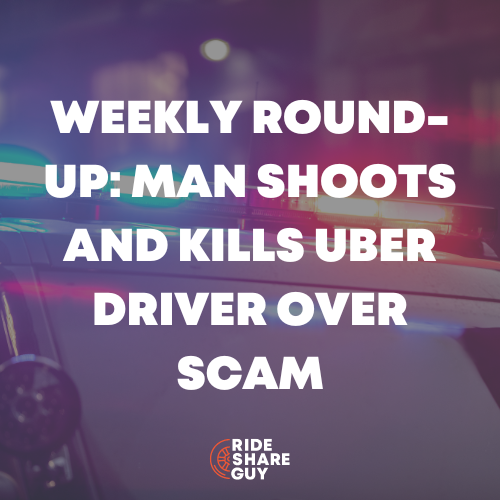In this week’s rideshare and delivery roundup, there’s a lot of interesting information to cover! Senior RSG contributor John Ince shares the backstory behind DoorDash and its meteoric rise, a delivery gone terribly wrong (all over $8?!), and an argument for letting gig workers remain gig workers.
Meet the startup that acquired Uber’s self-driving car technology [PittsburghPost-Gazette]
Sum and Substance: In 2007, one of its founders was part of a winning team for a competition that had autonomous vehicles navigating urban roads. In 2018, Aurora was the first startup to receive authorization from the state’s Department of Transportation to operate autonomous vehicles on public roads.
In 2020, it acquired Uber’s self-driving division — a much higher profile operation that once seemed like the leader to beat.
My Take: This is a profile of the company that bought Uber’s self-driving arm. In a close-knit world, I’m not sure this was worth all they paid for it, but what do I know.
Why Uber Stock Could See More Gains in 2021. Hint: Check Out DoorDash [Barrons]
Sum and Substance: One of the more surprising stock moves in 2020 has to be the 71% rally in Uber stock. With corporate travel largely evaporated, Uber’s ride-sharing business has suffered mightily in the downturn. There isn’t much need for rides to the office, the airport, or your favorite bar if you are working from home, traveling no place, and drowning your sorrows at the kitchen table.
But it was a fantastic year for Uber’s food delivery service, as consumers switched from dining out to ordering out. The September quarter nicely illustrates how the story has played out. Overall revenue in the period was $3.1 billion, down 17% from a year ago, and mobility revenue—better known as ride sharing—was down 51%. But delivery revenue was $1.5 billion, up 124%, and the company’s still modest freight delivery business grew 32%, to $288 million.
My Take: The movement of Uber stock has been a surprise. 71% is a pretty substantial boost. Somehow, though, I fail to see the continued upside. When the pandemic is over, presumably Uber Eats slides a bit and I don’t see that much growth on the taxi side of its business – especially with prices appreciating.
DoorDash’s ‘speedy’ founder on building a food-delivery empire Tony Xu tells how his immigrant mother’s example led to one of 2020’s biggest IPOs [NikkeiAsis]
Sum and Substance: PALO ALTO, U.S. — Tony Xu, co-founder and CEO of U.S. food delivery giant DoorDash, has always had a need for speed.
Born prematurely in Nanjing, China, his parents decided to name him “Xun”, meaning “speedy” in Chinese not only because he was born so early but also because his delivery took just a few minutes.
He did not keep that name for long, though. After moving to the U.S. with his parents in 1989, Xu soon found his name was too difficult for his American friends to pronounce. So he decided to rename himself Tony, after Tony Danza, star of the classic sitcom “Who’s the Boss,” which Xu watched after school every day to learn English….
My Take: Fascinating story here. Tony Xu is a true self-made entrepreneur with all ups and downs that come with it. But what happens after restaurants open up again and start serving food to people in the restaurant? I guess we’ll find out.
Protect Gig Workers By Allowing Them To Remain Gig Workers [Forbes]
Sum and Substance: Earlier this year the Department of Labor proposed a rule—due to be finalized any day now—that would formally spell out what constitutes a gig worker as well as what distinguishes such a position from a bona fide employee. The rule would add much-needed clarity to the labor market for millions of gig workers, the majority of whom like their current status and want to retain it.
The proposed rule was precipitated by California’s AB-5, which aimed to make drivers for Uber and Lyft—as well as independent contractors across a wide variety of occupations—become employees. The sentiment driving the law, which President-elect Joe Biden has endorsed, is that independent contractors are inherently in an exploitative position, and that making them employees would represent an unalloyed improvement in their status. Such a change would also give them easier access to health insurance and pension plans, they also argue.
However, for most gig workers this represents a solution to a non-problem. The reality is that most people who are independent contractors are comfortable in that status and have no desire to change.
Ten years ago a company called MBO Partners implemented an annual survey of independent workers called the State of Independence, and there is now a decade’s worth of data on this growing segment of the American workforce. The survey shows that this cohort extends far beyond Uber drivers, and many are paid quite well. More than 12 million Americans do some sort of gig employment on a full-time basis, and they earn $68,300 per year on average, well above the median worker income of $52,000. …
My Take: This article definitely has a point of view. I’m not sure I agree with it, but I decided to include it in the roundup to balance things out. What do you think? Are you satisfied with your status as an independent contractor? Could things be better?
Uber failed to make clear to consumers what legal rights they were giving up in opening on-line account [BostonGlobe]
Sum and Substance: An online contract used by Uber that “literally may require an individual user to sign his or her life away” was so legally flawed it cannot be used to force customers of the ride share giant into arbitration, the state’s high court ruled Monday.
In an unanimous decision, the Supreme Judicial Court said that Uber did not adequately notify consumers who opened accounts what constitutional or contractual rights they were surrendering although the company did so with on-line signups for drivers. The difference was a fatal legal failure, the SJC said.
“Uber cannot enforce the terms and conditions against the plaintiffs, including the arbitration agreement at issue here,’’ Justice Scott L. Kafker wrote for the unanimous court.
The on-line app was flawed because Uber did not effectively steer customers toward contract language spelling out what their privacy and contract rights they would retain — or surrender, the court said….
My Take: This is complex legal stuff, but the bottom line is that Uber’s online contracts are potentially invalid because they’re too complex. And that is welcome news. The bad news is that Uber has since revised its language so that this ruling may no longer apply. Did you get all that?
Frustrated DoorDash driver takes food back over customer’s $8 tip [NYPost]
Sum and Substance: A DoorDash driver refused to give a Long Island customer his food after she felt stiffed by the $8 tip. The heated confrontation was recorded on a Ring doorbell camera outside a home in Smithtown.
“I don’t think you realize the distance that it’s coming from because then you would never actually have given what you gave,” the female driver could be heard saying in a video posted to YouTube last week.
She then explained to the male customer that she “drove 40 minutes” to deliver the order from the neighboring town of Commack. “Do you realize how far it is? Do you realize you ordered from Commack and you’re in Smithtown?” the woman said.
The customer insisted that the job involved a “15-, 20-minute drive” — which the woman denies.
“I just drove it, it’s 40 minutes. It’s 12½ miles,” she said.
She then urged him to “make it right” by adjusting the tip and explained that he left $8 on the bill….
My Take: This story is getting a lot of play. An $8 tip doesn’t sound so bad especially if the route was 12 miles. It’s unclear who posted this. Was it the customer or was it the driver? My guess is that the woman driver was just having a bad day. She kind of lost her sense of perspective.
Readers, what do you think of this week’s roundup?
-John @ RSG




